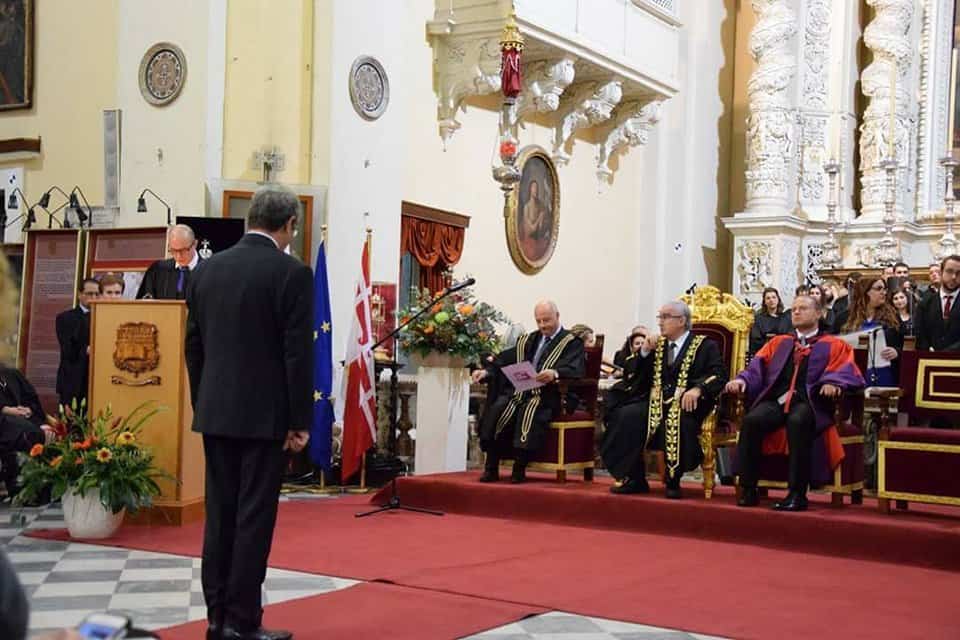The government is sending chilling signals to the academic community in Malta. It is not to be taken as a given that government actually intends to go ahead with its proposal of reducing the rector of the university to a clerk by invitation of a committee directly set up by government.
There is a pattern in the government’s behaviour of making outrageous proposals only to back down from them on the pretext of having listened to the democratic views in opposition. It then proceeds to introduce a middle of the road compromise that is a degradation of current laws and yet applauded for not being quite as oppressive as they could have been.
Consider for example the media law reforms first proposed by government last year. They took a page out of China and proposed legislation that would have forced anyone providing “information” on the internet to first seek the permission of the government. They never really intended to implement the measure. But they did want to double libel penalties provided for in the law to freeze journalists in their tracks out of fear of ruinous law suits. Now they appear to be introducing this outrage with the ironic gratitude of a community that is thankful we are not going to be sovietised into controlled submission.
The proposal to abolish university autonomy and submit academics to the full control of the government strikes me as a similar charade. After some ritualistic noise, expect the government to “listen” to the justified complaints and come up with a softer solution that will have the full intended effect of absorbing the university into the tentacles of the government.
Whatever they come up with, the chilling effect of silencing academic free thought is not obtained by the brutality of the legislation that is written. Take the time to read the constitution of Zimbabwe to see how beautifully dictatorships can describe a democratic state in their written laws.
The chilling effect is in the threat sent in these proposals to academics that at any time the government might choose to exercise its unlimited power to absorb them within its direct control and use its apparatichiks to exercise retribution for dissent. Even the rector would not be able to protect free thinking academics as she too would be subjected to the control of people whose only credentials would be the favour of the government.
It is no surprise that after stuffing the judiciary with its cronies, decapitating the police, lobotomising the state prosecutors, bribing, cajoling and threatening the free press, the government turns on the university in its campaign to strip our democracy of any means to resist the complete takeover of thought in this country.
Our academics are not particularly famous for their activism. Their low salaries and their dependence on the state to function is by no means a new phenomenon. But their vulnerability is now being exploited and specifically targeted particularly since going beyond the myth of l-aqwa żmien requires that specialised ability to dig deeper than common sense knowledge that academia is exactly designed for.
The silencing of academic autonomy is not a future achievement the government is seeking to obtain by legislation. It is something it has achieved already by the simple act of threatening that legislation.
You do not need to be bashed by a club to shut up. The sight of the club is enough for most people, even academics.

That posture of the prime minister in his doctoral robes is not just man-spreading bad manners. It is an assertion of power beyond even the loose limits we are used to. Since 2013 we have become re-accustomed to the Mintoffian dogma that state, party and government were indistinguishable. We are now stepping beyond that hegemony. We are confronted by a goose-stepping march into spaces government should have no place: the press, the parliamentary opposition, academia.
There are many good historians, sociologists, philosophers, anthropologists, political scientists and other specialists with different trades working at university. They know enough to realise with horror, that we have seen this awful thing before.